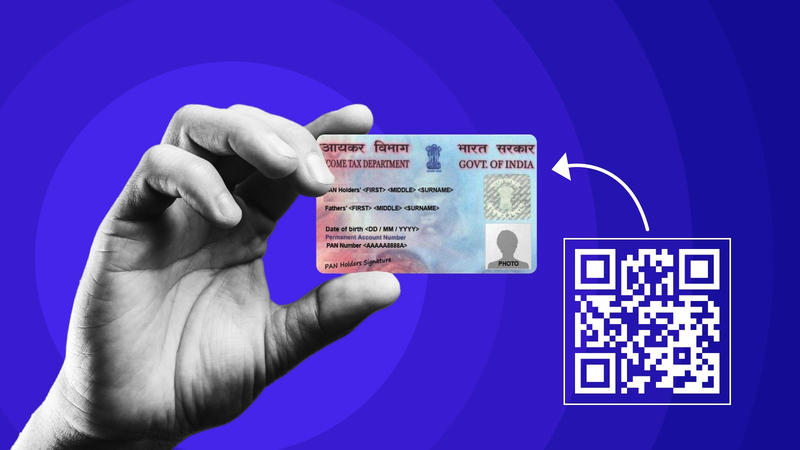Published 20:37 IST, November 26th 2024
PAN 2.0 with QR Codes: All You Need To Know | FAQs Answered
PAN 2.0 aims to streamline and digitise PAN services with a unified platform, real-time QR codes, and enhanced security for taxpayers and businesses.

PAN 2.0 explained: The PAN 2.0 Project, recently approved by the Cabinet Committee on Economic Affairs (CCEA), is set to overhaul how Permanent Account Numbers (PAN) are issued, updated, and managed in India. This initiative aims to unify and streamline PAN-related services under a single digital platform. Here’s what this means, why it matters, and how it will impact taxpayers, businesses, and institutions.
What is PAN 2.0?
The project is set to create a user-friendly system for managing all PAN and Tax Deduction and Collection Account Number (TAN) services. Currently, these services are spread across the income tax e-filing portal, UTI Infrastructure Technology and Services Ltd (UTIITSL) and Protean eGov Technologies Ltd (formerly NSDL). PAN 2.0 will consolidate these platforms into a single, unified portal.
Why does it matter?
Taxpayers will no longer need to navigate multiple portals for tasks like applying for a new PAN, correcting details, linking Aadhaar, or validating PAN numbers, as the integrated system will serve as a one-stop solution for all PAN-related services.
Core services such as issuance, correction, and updates to PAN will now be free of cost, except for physical PAN cards, which will require a nominal fee of Rs 50 for delivery within India and Rs 959 for international delivery.
The project will also introduce a PAN Data Vault, a secure repository designed to protect sensitive taxpayer information, addressing concerns about data breaches and ensuring compliance with India’s cybersecurity policies.
Furthermore, PAN cards issued post-2017 already feature QR codes for data verification, and with PAN 2.0, these codes will reflect real-time updates, making the verification process quicker and more reliable.
Additionally, e-PANs will be issued in digital format and sent to the registered email ID of applicants, reducing wait times significantly and enhancing convenience for users.
To further support this transition, a dedicated call centre and helpdesk will be set up, ensuring smoother resolution of taxpayer issues. Ultimately, this move aligns with the Digital India vision by promoting paperless, eco-friendly processes.
No new PAN needed
Existing PAN holders won’t need to apply for a new card under PAN 2.0, as current PANs remain valid. Updating details like name, address, or date of birth will be easier, with free online corrections available. The system also introduces real-time QR codes to ensure the information on PAN cards matches the Income Tax Department’s records.
Significance for businesses
PAN 2.0 introduces PAN as a Common Business Identifier. This change simplifies compliance by allowing businesses to use their PAN for multiple government services, including GST, customs, and company registration. The centralized system also speeds up bulk PAN verification for banks and financial institutions.
What to watch for
The shift to PAN 2.0 may cause temporary service disruptions. Educating users about the new system will be key to smooth adoption, while accurate data migration from existing platforms will require careful execution.
Updated 17:15 IST, November 28th 2024